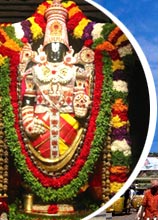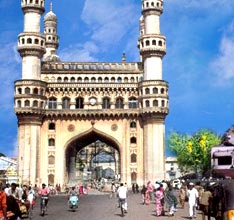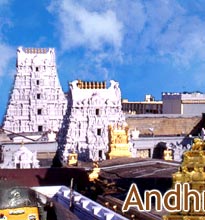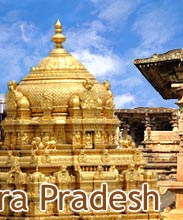 Lepakshi is actually a small village that is situated in the east of
Hindupur, which falls under the Anantapur district of Andhra Pradesh.
This settlement is famous for its artistic temples, which date back to
the 16th century. A striking specimen of the Vijayanagar style of
architecture is the Lepakshi Temple. It has a huge complex where three
shrines dedicated to Lord Shiva, Lord Vishnu and Lord Virabhadra are to
be found. Lord Virabhadra is the wrathful form of Shiva, the patron
deity of the Nayak rulers.
Lepakshi is actually a small village that is situated in the east of
Hindupur, which falls under the Anantapur district of Andhra Pradesh.
This settlement is famous for its artistic temples, which date back to
the 16th century. A striking specimen of the Vijayanagar style of
architecture is the Lepakshi Temple. It has a huge complex where three
shrines dedicated to Lord Shiva, Lord Vishnu and Lord Virabhadra are to
be found. Lord Virabhadra is the wrathful form of Shiva, the patron
deity of the Nayak rulers.The temple has a central pavilion, embracing all the three shrines. This pavilion is further connected with an intermediary hall and a hall for ritual dance. A large open court that is accessible from the east surrounds the main hall. Lepakshi Temple perhaps houses the largest monolithic structure of Nagalinga in India. Another exquisite statue of Lord Ganesha captures the attention of everyone, especially when people enter the second interior court.
The interiors boast of impressive sculptures in half-relief on the granite pillars. The carvings represent dancers, drummers and divine musicians. Here, you can see Lord Brahma playing drums, celestial nymph Rambha dancing and Lord Shiva engaged in 'Ananda Tandava'. In the intermediary hall, there is a frieze that depicts geese with lotus stalks in their beaks. The flawless carvings adorn the entire temple perpetually, all of them done with the minutest of details.
Most celebrated for its splendid paintings, Lepakshi Temple has a colossal painting of Virabhadra in the central hall. In the 'Hall of Dance', one can trace eight panels, depicting Puranic legends on the ceiling. Most of the paintings and murals have been devastated by the ravages of times. Lepakshi is a notable store of expertise, which is on the brink of extinction. In concise terms, the temple is a work of art that certainly deserves a visit.











